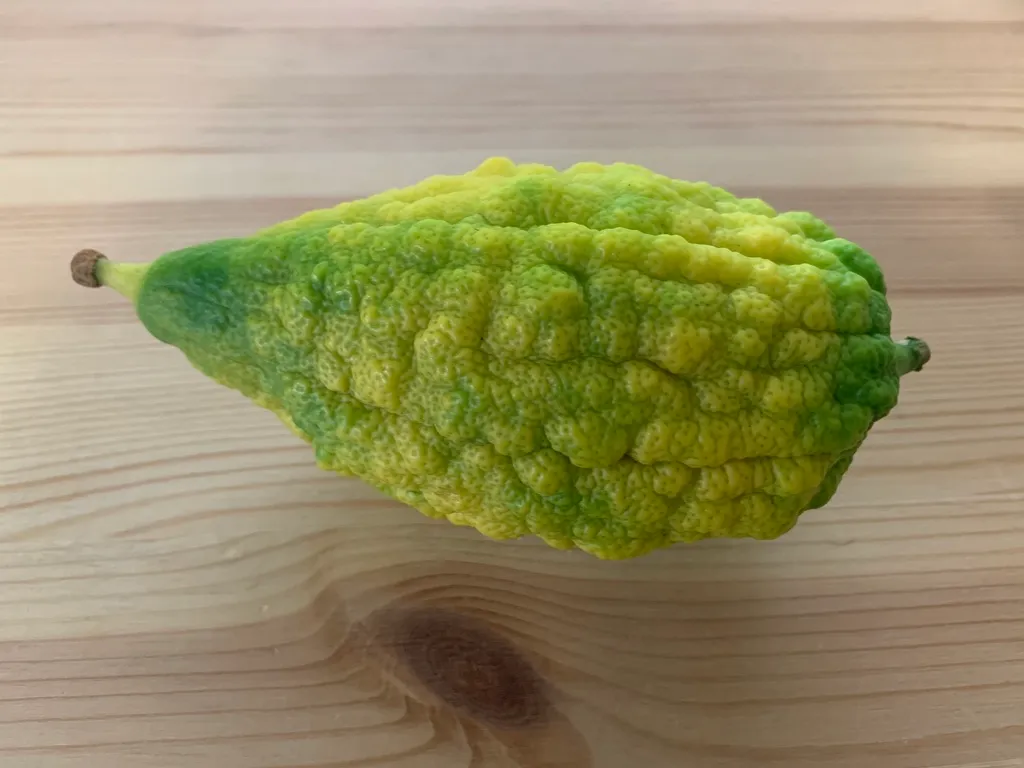But when Sukkot gives you etrogim...
One of my great joys each year is selecting a lulav and an etrog. Like many, I thoroughly enjoy examining each one to find one that speaks to me. I remember living in Jerusalem, while in Rabbinical School, walking through vast markets with thousands of options.
Judaism is extremely intellectual. So much of it uses our mind. To pray, to bless, and to learn are all based on our ability to engage our imagination, our creativity, and our curiosity. As much as Talmud is filled with stories of emotion, and it is filled with such stories, so much more of it is about how we think through situations.
That intellectuality is one of the reasons I love being and doing Jewish. It is one of the ways I engage deepest with the Tradition. The back and forth and the logical arguments are exhilarating to me.
Sukkot is exactly the opposite.
It is all heart and physicality. This counterpoint in approach helps create an essential balance, not just to the season of holidays, but internally as we observe Jewish customs.
We build a sukkah.
We shake plants.
We sit outside.
These supremely physical acts engage different muscles (excuse the pun) than we normally use. They require us to be grounded in our own personal Judaism. The form of Judaism that fills our homes. They require us to marvel at the strangeness of Judaism. Let’s not lie, shaking fruit is weird. And they require us to experience something with our bodies. Similar to Tefillin, another very physical mitzvah, Sukkot asks us to bring something different to the equation.
More than any of that, Sukkot asks us to be joyful. And truthfully, joy is not easy. Sukkot is described as זמן שמחתינו, zman simchateinu, the time of our joy. And understanding these two words are the key.
Zman means time.
Judaism designates very few physical places as sacred but instead consecrates time. This limited resource is made precious through our intentionality and our awareness. Shabbat, holidays, shared moments together, each of those is sacred.
We all live in profoundly noise-filled lives. This barrage makes it challenging to be present. This cacophony demands that our brains pay attention to so much that does not deserve it. The pandemic on top of that has forced us into a dangerous obstacle course every time we leave our homes.
Sukkot is a reminder to be present. To take a break, to stop grinding away, and pause.
Simchateinu means our joy.
We might ask, what does real joy look like? What does this concept really mean?
A value-concept adjusts its meaning to the context but shares some unified qualities. I’ve been reading Max Kiddushin’s The Rabbinic Mind which is all about explaining value-concepts and I’m sure you’ll hear about it more in future posts.
A simchat bat celebrates the birth of a daughter.
Simchat Torah, coming up soon, celebrates our collective act of reading and engaging with Torah.
At a wedding, we say, that the couple should sameach with one another.
In each of these, simchah, joy, is intrinsically linked with interacting with other people and with gratitude. We are grateful for that new child, grateful for Torah, grateful to our partner.
On Sukkot, we are grateful for everything we have. Rooted in the bounty of harvest, we are expected to reflect on what we have. During the pandemic, we are more disconnected from each other than ever, so we must lean into gratitude.
Zman simchateinu, time to be joyous through gratitude.
This year, I didn’t get to choose my lulav nor my etrog. I love them to be bright yellow, all one color, and with no blemishes. I used to buy mine without a pitom, the small protrusion at the end of an etrog. WAY less anxiety-producing. (For context, they are not longer halakhically acceptable if the pitom is broken.) I like my lulav to be very straight with none of the tips bent in any way.
This year my etrog is green and yellow together, not a single color. My lulav has a slight bend.

Now, I could choose to be frustrated and upset. The pandemic has stolen a Jewish ritual I love. I know that I cannot fill my sukkah with many guests, the pandemic has taken that too.
But instead, I’m going to lean into the gratitude. I’m going to whisper to myself, in moments of frustration, zman simchateinu, zman simchateinu. I’m going to find something beautiful in this etrog that I would never have chosen. In some sense, it chose me this year.
When life hands you etrogim, you make etrog-ade, or etrog jelly, or etrog liquor. Whatever floats your boat.
For this Sukkot, as we navigate this complicated, conflicting world, all we have to remember is that this is zman simchateinu. All you have to do is sit in peace, shake some fruit, and find some gratitude.
Moadim L’simchah, have a wonderful, joyous holiday!